Land Rovers, houses and whisky: Gold rally brings riches to rural Zim
Cabo Delgado: 600 women, girls kidnapped since 2018, some sold to foreign fighters
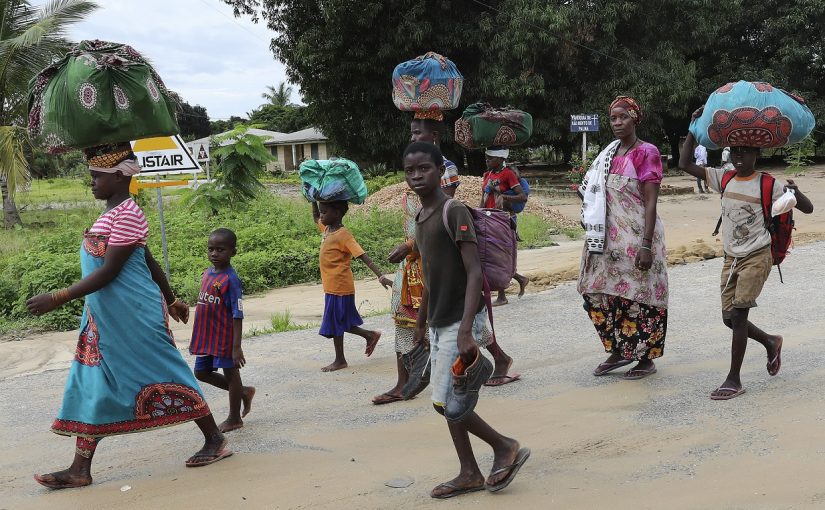
FILE PHOTO - For illustration purposes only. [File photo: Lusa]
At the threat of an assault rifle, a woman had to point out to the rebels in Cabo Delgado, northern Mozambique, the houses in the village of Diaca where girls lived.
From among about 200 girls aged between 12 and 17, they chose who they wanted to kidnap, while the mothers begged them to take them themselves and leave the children and young girls behind.
But the gunmen said they did not want the older ones and investigations indicate why: the Cabo Delgado victims are said to have served rebels to supply women trafficking networks stretching from Europe to the Persian Gulf.
The report on Diaca concerns one of the attacks on the district of Mocímboa da Praia in 2020 and was released yesterday by the NGO Human Rights Watch (HRW), in a communique titled “Mozambique: Hundreds of women, girls abducted “.
“An armed group linked to the Islamic State (ISIS) has since 2018 kidnapped and enslaved more than 600 women and girls in Mozambique’s northern Cabo Delgado province. Mozambican and regional forces have rescued some of them, but many remain missing”, reads the HRW report.
Read: Mozambique: Hundreds of women, girls abducted – Human Rights Watch
According to survivors’ reports to HRW, “the group, known locally as Al Sunnah wa Jama’ah (ASWJ) and Al-Shabab (or mashababos) forced younger, healthy-looking, women and girls in their custody to “marry” their fighters, who enslave and sexually abuse them,”, while “others have been sold to foreign fighters for between 40,000 and 120,000 Meticais (US$600 to US$1,800)”.
“Abducted foreign women and girls, in particular, have been released after their families paid ransom,” the NGO added.
Read: Dozens of kidnapped teenagers and women freed in Cabo Delgado – VOA
The scale of the abductions gained visibility in April, with an investigation by Mozambique’s Observatório do Mundo Rural (OMR): at the time, researcher João Feijó told Lusa that hundreds were reportedly selected for international women trafficking networks, with a reach as wide as from Europe to the Persian Gulf.
OMR heard testimonies “from the most beautiful girls” who “at the end of an indoctrination session would tell their companions that they had been selected to go to Tanzania to study”.
Read: Mozambique: Kidnapped women return, tell of insurgent organisation
Mozambique: Insurgents using women in combat action – study
Yesterday, Mausi Segun, Africa Director for HRW, renewed the appeals, addressed to the leaders of the rebel groups, to “immediately release every woman and girl in their captivity”, and to the Mozambican authorities, to provide adequate support to the victims.
” In recent years, the Mozambican authorities have made some progress rescuing hundreds of kidnap victims from the group’s bases. However, the authorities have kept those liberated incommunicado for weeks or longer without access to relatives, ostensibly for security screenings,” HRW reported.
Human Rights Watch conducted its investigations between August 2019 and October 2021, its findings are based on interviews of former abductees, their relatives, security sources, and government officials, as well as media reports.
Cabo Delgado province is rich in natural gas but has been terrorised since 2017 by armed rebels, with some attacks claimed by the extremist group Islamic State.
The conflict has led to more than 3,100 deaths, according to the ACLED conflict registration project, and more than 817,000 displaced people, according to Mozambican authorities.
Since July, an offensive by government troops with support from Rwanda, later joined by the Southern African Development Community (SADC), made it possible to increase security, recovering several areas where there was rebel presence, including the town of Mocímboa da Praia, which had been occupied since August 2020.




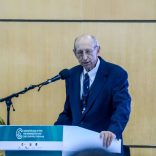
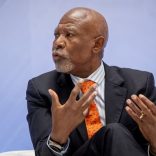
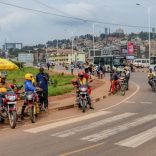
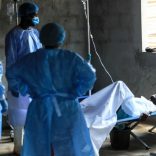




Leave a Reply
Be the First to Comment!
You must be logged in to post a comment.
You must be logged in to post a comment.